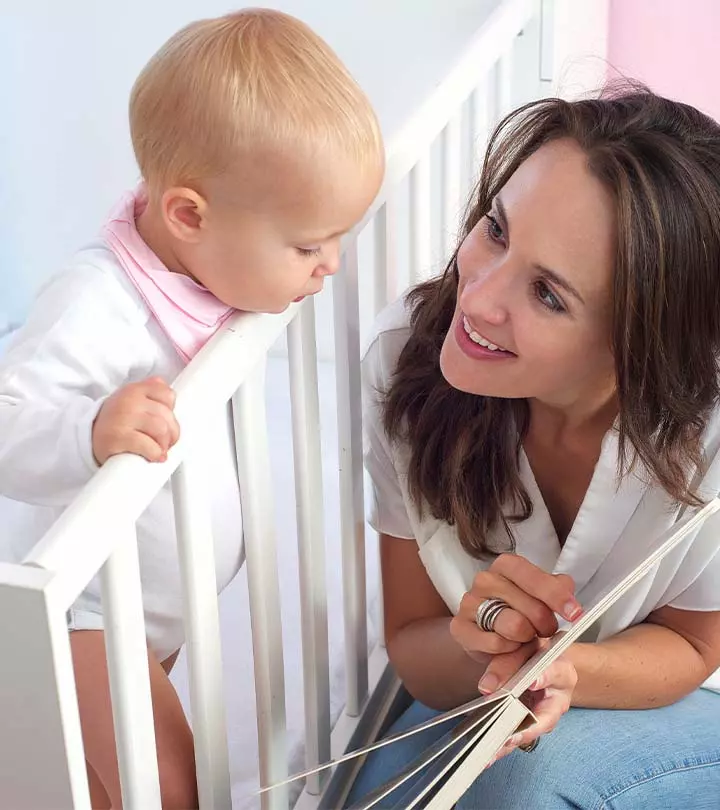
Image: Shutterstock
I wish someone had told me back then how talking to your baby helps in more ways than one. I am a woman of few words, but perhaps I could have articulated better if only I knew how helpful it would be to my baby. Apparently, the more the child is exposed (from 0- 3 years) to early talking by parents, grandparents, and caretakers, the better are the language and communication skills of the child.
We, usually, wait for the baby to grow a little before we begin communicating with them. Though we talk a bit, it is not as if we are talking to a toddler or kid. However, you can start talking to your baby even when he is in your womb.
So, what’s in it for the baby when you talk to him? Let me explain:
- Builds child’s language and communication skills (1)
- Improves understanding of language and vocabulary
- Helps in the development of the brain
- Kids are likely to perform better in school
- Stimulates the developing brain
- Helps in reading, writing, and interpersonal skills later in life
- Increases brain power
- Supports reading and thinking skills
- Helps grasp the nuances and dynamics of language at an early age when their mind is in the absorbent phase
- Improves cognitive development
- Enhances social skills
- Teaches him to make a conversation
So, are you wondering what on earth you can talk to your baby? You could talk about everything under the sun. The day-to-day routine at home, anything that your baby points to, shows interest in, for that matter practically anything.
How much do you talk to your baby?
The more, the better! But, read your baby’s signs. If he shows signs of tiredness, irritation, or is fussy, then it’s time to put him to bed or feed him. If he shows interest when you are talking, then carry on.
When to start talking?
As early as possible! The child’s mind is remarkably absorbent at this stage – it absorbs information just like a sponge. So, present him with everything you want him to pick up.
It might seem like a monolog initially, but babies do respond to you by cooing, gesturing, smiling, laughing, eye contact and other expressions. You need to focus on your baby while talking so that you notice his responses.
When to talk to your baby?
There’s no fixed time for talking. Anytime is a good time! Nappy time, during the feed, while bathing, burping, or strolling.
If you are like me and find monologs difficult, then let me help you with a few tips on talking to your baby:
- Be in the moment while you talk to your child. Other things can wait.
- Focus on how your little one responds through his gestures and expressions.
- Watch out for the signs your baby displays. Choose a time when he is ready for talking and not an inappropriate one such as when he is tired or sleepy.
- Make your conversation interesting and engaging. How you talk is more important than what you talk about.
- Reinforce communication by smiling back and reciprocating expressions.
- Encourage his listening skills by narrating the everyday activities, such as feeding, dressing, holding, bathing, and so on.
So, here’s a shout-out to all mommies out there to put away your smart phones and engage your babies with real-time conversations. It’s a worthy investment to make as you are laying a solid foundation for your child’s lifelong learning.
Tell us what you think of ‘baby talk’ or if you have involved in baby talking with your kid.













